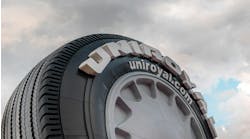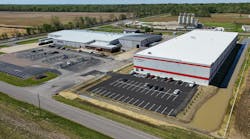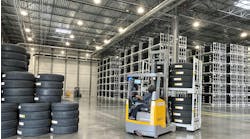Apollo Vredestein B.V. is a partner in the EU-PEARLS project, which has one objective: to find a European alternative to natural rubber from the rubber tree.
"Natural rubber is indispensable to many industries, including the tire industry, in which Apollo Vredestein is a major player," says the company. "With many applications, it is not possible to simply replace natural rubber with a synthetic variant."
Mounting shortage
Natural rubber is currently extracted from the rubber tree, which grows mostly in Asia. Rising demand and a falling number of providers have led to a growing shortage of natural rubber. The sensitivity of the rubber tree to diseases such as the South American Leaf Blight is an additional threat. An appearance of this disease in Southeast Asia would drastically increase the world rubber deficit.
The EU-PEARLS project
To reduce dependence on the rubber tree, there is a need for an alternative on the European market. EU-PEARLS is a joint project between several European research organizations and industrial partners that focuses on research into two plants, the Russian dandelion and the desert plant guayule.
The goal is to make it possible to produce natural rubber in Europe. Important components of the research include:
* finding suitable conditions for the growth of these plants in Europe;
* optimizing the yield and quality of the natural rubber; and
* designing the ideal extraction methods.
The ultimate aim is an optimized use of the raw material in finished products such as tires and other rubber articles.
Another advantage of these two new sources is that the natural rubber extracted from them does not contain proteins, which can cause allergic reactions. One to six per cent of the world’s population is currently allergic to natural rubber from the rubber tree.
Initial research winner: dandelion
According to Apollo Vredestein, initial studies show that both the Russian dandelion and guayule are a good alternative to the rubber tree in terms of their properties. Guayule is already used to produce biomass on a large scale in Spain.
The rubber from the Russian dandelion appears to be easier to extract, however. In the coming period, the research will therefore focus on the optimization of the growth development and growth speed of the Russian dandelion so as to increase its content of natural rubber available for extraction.
The research results will be presented in September 2012 during the closing conference of the EU-PEARLS project in Wageningen, The Netherlands. For more information, visit www.eu-pearls.eu.



